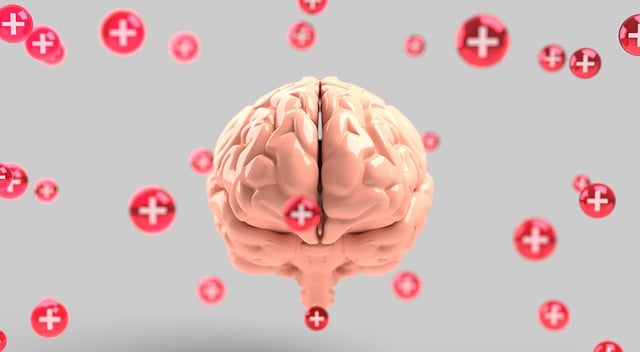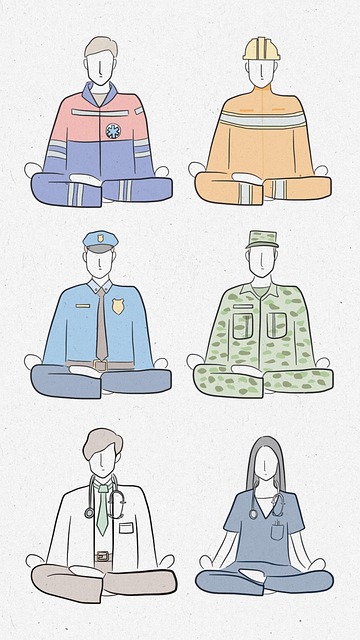Aurora Oppositional Defiance Disorder (AODD) presents distinct challenges, including anger management, low self-esteem, and emotional dysregulation. Effective AODD therapy requires mental health professionals to foster a compassionate environment, encourage open emotion expression, and implement Mind Over Matter principles. Risk assessment strategies must go beyond basic screening, integrating emotional intelligence to recognize subtle changes. Specialized approaches, such as clear boundary setting, crisis management plans, open communication, evidence-based treatments (e.g., tailored AODD therapy, stress reduction methods), and post-discharge support, are crucial for managing AODD and mitigating risks while enhancing professionals' well-being through mindfulness practices.
Mental health professionals often encounter complex cases, including Aurora Oppositional Defiance Disorder (AODD) in therapeutic settings. This article explores the critical aspect of risk assessment for these professionals, delving into AODD’s unique challenges and its impact on therapy. We’ll discuss identifying potential risks, implementing strategic assessments, and providing safety protocols to support clients effectively. By understanding AODD in a therapy context, professionals can navigate risks, ensure client well-being, and deliver quality care.
- Understanding Aurora Oppositional Defiance Disorder (AODD) in Therapy Context
- Identifying Risks and Potential Challenges for Mental Health Professionals
- Implementing Effective Risk Assessment Strategies
- Mitigating Risks: Safety Protocols and Continuous Support for AODD Clients
Understanding Aurora Oppositional Defiance Disorder (AODD) in Therapy Context

Aurora Oppositional Defiance Disorder (AODD) presents unique challenges for mental health professionals. It’s characterized by frequent and consistent patterns of angry, irritable, or defiant behaviour, often affecting a person’s relationships and daily functioning. In a therapy context, understanding AODD involves recognizing these behaviours as potential signs of underlying struggles rather than mere opposition. By applying Mind Over Matter principles, therapists can foster a compassionate environment that encourages clients to express their emotions openly.
Depression prevention is another crucial aspect when dealing with AODD. Through various therapeutic interventions, professionals can help individuals develop coping strategies to manage anger and defiance effectively. Compassion cultivation practices have proven beneficial in promoting emotional regulation and building positive relationships, ultimately supporting the client’s journey towards mental well-being.
Identifying Risks and Potential Challenges for Mental Health Professionals

Mental health professionals often find themselves at the intersection of profound emotional experiences and complex client needs. Identifying risks and potential challenges in this field is crucial for maintaining a healthy work-life balance and delivering optimal care. One such challenge pertains to working with individuals diagnosed with Aurora Oppositional Defiance Disorder (AODD). AODD presents unique complexities, requiring therapists to adapt their therapeutic approaches to address the patient’s defiant behaviors, low self-esteem, and potential anger management issues.
Moreover, the demanding nature of the work can lead to burnout if professionals do not prioritize self-care practices. Incorporating techniques like mindfulness meditation into daily routines can enhance mental wellness and resilience. By fostering a culture of awareness and self-reflection, therapists can better navigate the emotional demands of their practice, ensuring they are equipped to support clients effectively while preserving their own well-being.
Implementing Effective Risk Assessment Strategies

In the realm of mental health therapy, effective risk assessment is paramount to ensuring client safety and fostering a supportive environment. Professionals must go beyond basic screening and delve into comprehensive strategies that consider the intricate dynamics of each client’s psychological landscape. This involves integrating emotional intelligence as a key component, enabling therapists to interpret non-verbal cues and recognize subtle changes in mood or behavior. By enhancing mental health awareness among both practitioners and clients, resilience building becomes an integral part of the therapeutic process, empowering individuals to navigate challenges with greater equanimity.
For instance, when encountering individuals struggling with Aurora Oppositional Defiance Disorder (AODD), therapists should employ tailored risk assessment techniques. This includes exploring potential triggers, past traumas, or underlying emotional dysregulation. By fostering open communication and utilizing evidence-based therapeutic approaches, mental health professionals can create a safe space for clients to express their feelings and work towards healthier coping mechanisms. This proactive approach not only mitigates risks but also promotes positive outcomes in therapy, ensuring the well-being of both the therapist and the client.
Mitigating Risks: Safety Protocols and Continuous Support for AODD Clients

Mental health professionals working with clients diagnosed with Aurora Oppositional Defiance Disorder (AODD) face unique challenges. To mitigate risks effectively, it’s crucial to implement robust safety protocols tailored to this specific client group. This includes establishing clear boundaries, developing crisis management plans, and ensuring a safe therapeutic environment that encourages open communication. Regular debriefing sessions and ongoing supervision can help professionals process complex cases and manage their own mental wellness, preventing burnout.
In addition to these measures, offering evidence-based treatments like therapy tailored for AODD, along with Stress Reduction Methods and Social Skills Training, can significantly enhance client outcomes. These interventions not only target the core symptoms but also foster resilience and adaptive coping strategies, ultimately contributing to improved mental wellness. Continuous support throughout treatment and post-discharge is essential to prevent relapse and ensure long-term success.
Mental health professionals play a vital role in helping clients manage complex conditions like Aurora Oppositional Defiance Disorder (AODD) in therapy. However, this comes with inherent risks that require careful consideration and proactive management. By understanding AODD’s unique challenges, implementing robust risk assessment strategies, and adopting effective safety protocols, professionals can ensure a supportive environment for both the client and themselves. Continuous support and ongoing training are key to mitigating risks effectively, fostering positive outcomes, and enhancing the overall therapy experience for AODD clients.














